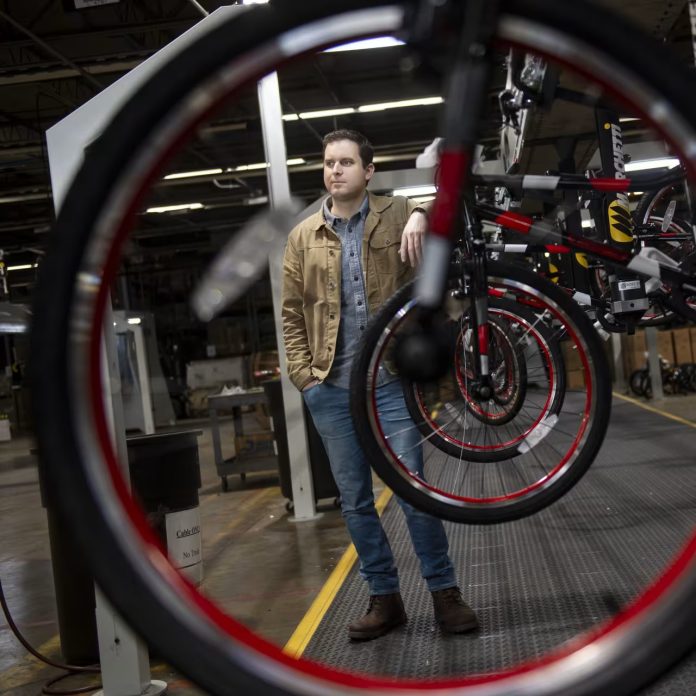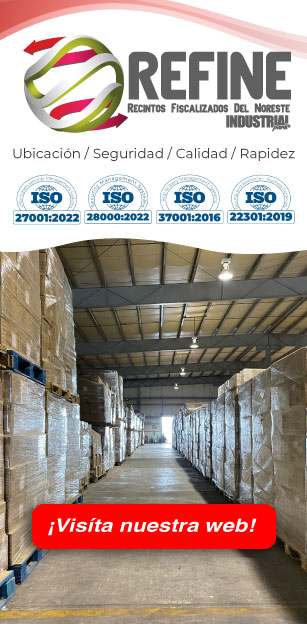In 2022, Brian Riley opened a bicycle factory in Seymour, Ind., shifting production of his Guardian Bikes brand to the U.S. from China. The problem for him now: Nearly all the parts still come from China.
Riley had aspirations to use American-made components before the November presidential election of Donald Trump, who has vowed to enact steep tariffs on imports from China.
Riley, founder and chief executive of the children’s bike maker, hopes these tariffs will help him shift to U.S. components faster by making American-made bikes and parts more competitive against Chinese-made ones. But it is still a tall order. Chinese manufacturers have dominated the bicycle supply chain for decades.
Almost all of the bicycles sold in the U.S. are imported, and the vast majority of those are made in China or assembled from Chinese parts, according to industry estimates and trade data. A typical bicycle is made of 30 to 40 parts, most of them from different Chinese manufacturers.
For now, components from China represent about 90% of the total cost of Guardian’s parts. By the end of next year, Riley hopes that figure will be about 20%. Guardian is starting production of its own bike frames and is working to source parts such as grips and reflectors stateside. As a result of Guardian’s new manufacturing, American-made parts could represent about 60% of the cost.
Riley moved his production to the U.S. because he wanted to build a safer bike that could prevent the kind of head-over-heels braking accident that had injured his grandfather years earlier. Many bikes sold at retailers such as Walmart or Target aren’t fully assembled when they are shipped to the retailers from overseas, so manufacturers don’t have oversight on the final assembly.
“By controlling every aspect of production, we can guarantee the quality of every bike that rolls off our assembly line,” he said. Guardian prices its children’s bikes between $149 and $399. That puts the company’s direct-to-consumer bikes at a price point between mass-market brands and more premium ones sold at bike shops.
Moving production to the U.S. isn’t a viable option for all bike companies. After Trump increased tariffs on Chinese imports in 2018, premium children’s bike maker Prevelo Bikes moved its production to Taiwan. It has since expanded production to Thailand and Cambodia. Prevelo’s bikes range in price from $240 to $1,400. The factories it uses are highly specialized with expensive machinery, said Prevelo’s chief executive, Jacob Rheuban.
“I am not in the position to build those factories here,” said Rheuban. “If we are looking to reshore, we need a larger movement on behalf of the entire industry.”
Even if Prevelo assembled bikes here, it would still be building them using foreign components subject to tariffs, Rheuban said.
Larger manufacturers also have shifted production in response to U.S. tariffs on China. Taiwanese bike company Giant Group, which makes about four million bikes a year, recently opened a factory in Vietnam because the U.S. imposes lower tariffs on imports from that country, a Giant spokesperson said. The Vietnam factory currently has a production capacity of 100,000 bikes a year. Giant also has facilities in China and Europe.
Riley decided to locate his factory in Indiana because it was close enough to most places in the U.S. for two-day shipping and because it was near steel mills where the company could source material when it eventually made its own frames.
Opening a factory in the U.S. wasn’t easy. Riley was able to hire a group of skilled workers because a local ironing-board manufacturer went out of business. At first, workers were slow to build the bikes, putting together 100 a day. It took time and constant tweaking of the assembly line to improve their speed and efficiency. Guardian’s labor costs shot up, though they were partially offset by the lower freight costs of shipping individual components from China rather than mostly assembled bikes.
“We had to bite the bullet,” said Riley, who is 37 years old. “We had to be willing to lose money for a while to get to the other side of the strategy.”
The factory’s 250 staff can churn out up to 2,700 bikes a day, and Guardian has the scale to begin contracting with U.S. parts manufacturers.
Guardian plans to begin making bike frames at the factory this year, using American steel. The bike maker has asked its Brazilian rim supplier to consider a facility in Indiana near Guardian’s factory. Guardian is also considering making rims itself. The bike maker has approached U.S. suppliers that could provide grips and reflectors. Other labor-intensive parts such as hubs or cranks may be harder to source in the U.S., Riley said.
During Trump’s first term, tariffs on assembled children’s bikes from China rose to 36% from 11%. Assembled bikes were later exempted, which meant Guardian paid levies for imported parts while some of its competitors didn’t pay tariffs to import assembled bikes.
Since the U.S. lifted the assembled-bike exemption in 2024, the cost to make Guardian’s bikes has been more comparable with other bikes sold in the U.S., Riley said. In addition, Trump has proposed cutting the corporate tax rate to 15% from 21% for companies that make their products in the U.S. and expand tariffs on foreign-made goods.
“Everyone says making bikes here is impossible,” Riley said. He said his factory shows it isn’t.





